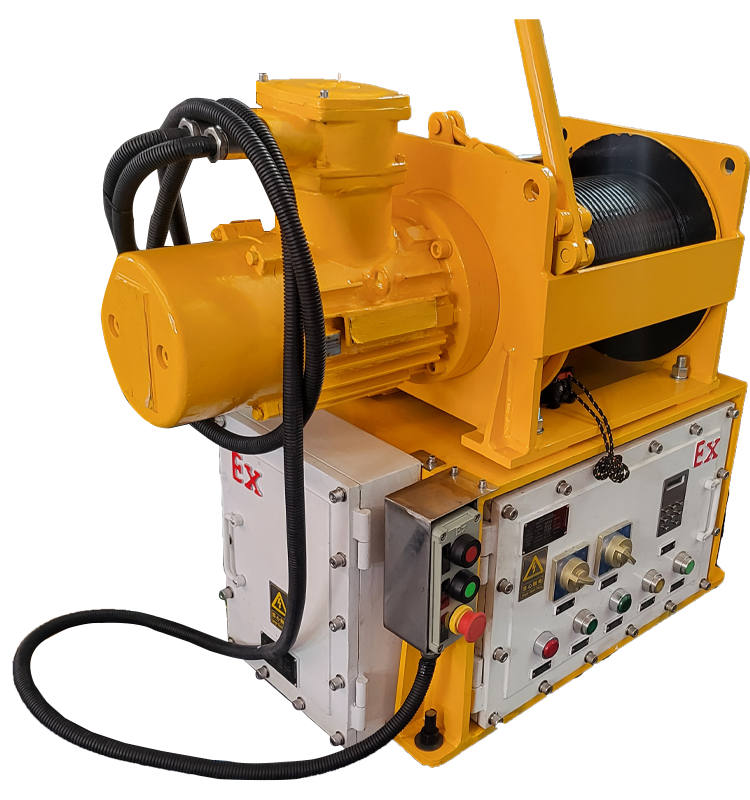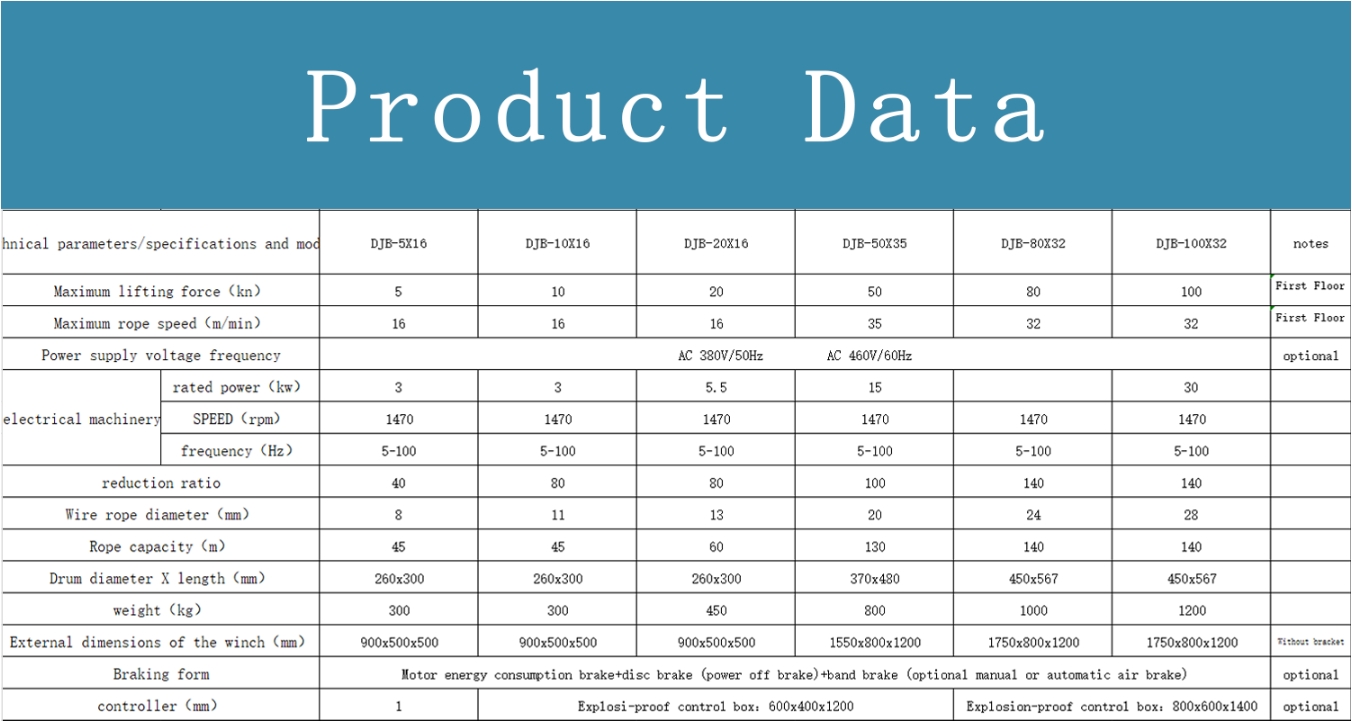 中文版
中文版



Welcome to contact us by phone:0086-0312-7969888
Both DC (Direct Current) and AC (Alternating Current) electric winches have their own set of advantages and disadvantages. The choice between them often depends on specific application requirements and operating conditions. Here's a comparison of the two:
Portability:
DC winches are often more portable and versatile, making them suitable for applications where mobility is crucial, such as on off-road vehicles or in remote locations.
Ease of Installation:
DC winches are generally easier to install and require less complex electrical systems. They can be easily mounted on vehicles without the need for extensive modifications.
Simple Control:
DC winches usually have simple controls, making them user-friendly for operators with basic training. Control can be achieved using a handheld remote or a control panel.
Compatibility with Vehicle Batteries:
DC winches can be powered directly from a vehicle's battery, making them convenient for automotive applications.
Variable Speed Control:
DC motors allow for variable speed control, providing flexibility in handling different loads and tasks.
Limited Power Output:
DC winches may have limitations in terms of power output, especially in high-demand applications. This can affect their performance for heavy-duty tasks.
Voltage Drop:
Over longer cable lengths, DC winches may experience voltage drop, affecting their efficiency and performance.
Maintenance Requirements:
DC winches may require more frequent maintenance compared to AC winches, particularly for the brushes and commutator in the motor.
High Power Output:
AC winches generally have higher power output capabilities, making them suitable for heavy-duty applications and tasks that require substantial lifting or pulling capacities.
Stable Power Supply:
AC power sources provide a stable and consistent power supply, reducing the risk of voltage drop over longer cable lengths.
Longer Duty Cycles:
AC winches are often designed for longer duty cycles, making them suitable for continuous or frequent use without overheating.
Reduced Maintenance:
AC winches, particularly those with brushless motors, may have reduced maintenance requirements compared to DC winches.
Complex Installation:
AC winches typically require more complex installation, including the need for an inverter or access to an AC power source. This can make them less convenient for certain applications.
Less Portable:
AC winches are generally less portable compared to DC winches, making them less suitable for applications that require mobility.
Limited Speed Control:
AC winches may have limited speed control options compared to DC winches, which can be a consideration for tasks that require precise speed adjustments.
Higher Initial Cost:
AC winches, especially those with advanced features and higher power ratings, may have a higher initial cost compared to DC winches.
In summary, the choice between DC and AC electric winches depends on factors such as power requirements, mobility, duty cycle, and installation complexity. DC winches are often preferred for applications that prioritize portability and simplicity, while AC winches are suitable for heavy-duty tasks where higher power output and longer duty cycles are essential.

X